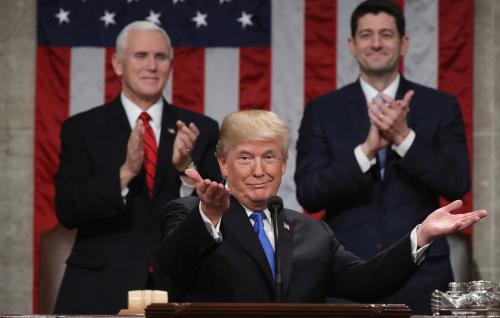Since becoming president of the United States, Barack Obama has visited five African countries: Ghana, Egypt, Senegal, Tanzania, and South Africa. The president used his 2009 trips to Ghana and Egypt to articulate his broad and ambitious policy of engagement towards sub-Saharan Africa and the Arab world, respectively. The president’s pronouncements during the trips to Ghana and Egypt generated high expectations for a new dawn in the relationship between United States and these regions. Nevertheless, there was not much by way of new policy initiatives to back these pronouncements, and, thus, to a large extent these two visits were more symbolic than substantive. As such, during his first term a lot of criticism by policy analysts was directed at the president’s detachment from Africa. Many felt that under Obama’s presidency America was lagging behind many other countries especially China, India, Brazil, and even other smaller economies such as Turkey in its engagement with Africa.
In 2013, the president made a more extensive and substantive trip to Africa, traveling to Senegal, South Africa and Tanzania. During this visit, the president announced actual initiatives that aim to deepen commercial relations, support regional trade logistics, and enhance security. Also significant was the announcement of the first U.S.-Africa Leaders Summit to be held the following year, in August 2014.
In 2013 President Obama indicated that he would visit Africa at least one more time during his presidency. The expectation is that this trip will be later in 2015 but most likely in 2016—his last full year in office. Given that planning for U.S. presidential international trips require months, if not years, of planning, it is a good bet that the planning for the next African trip will soon be underway. Thus, his planning team should note that a good way to maximize the impact of his trip is to be more strategic in the choice of countries visited and also include a policy focus relevant to the entire continent.
While the countries visited so far are quite deserving of the honor, the omission of others has been, so far, both very significant and clearly misguided. It appears the choice of the countries visited by the president were based on what were seen as “safe bets”—those meeting some peace and governance thresholds. The president has avoided countries facing major challenges such as terrorism and poor governance records. For a more lasting impact, though, the president needs to get out of his comfort zone, visit non-“safe bet” countries, and connect with countries showing openness to reforms, are rising economic leaders, and could be key strategic security partners.
In this regard, I propose that the president trip cover at least the following countries: Nigeria, Ethiopia, and Kenya.
Nigeria
Nigeria, a country characterized by serious governance problems compounded by ever-intensifying incidents of terrorism imparted by Boko Haram, would not pass the “safe bet” test. Notwithstanding the failures and challenges that Nigeria faces, and regardless of how the 2015 elections turn out, this is the country that deserves a visit by President Obama.
It is a country that has long been characterized by high levels of corruption and serious ethnic and religious fractures. But Nigeria is the most important country in Africa, and it is the country that has the most influence on the direction that Africa takes. It is now the largest economy on the continent and has the largest population there. In addition, Nigeria is the dominant country in West Africa’s regional economic community—the Economic Community of West African States (ECOWAS). Despite all its shortcomings, Nigeria has, in recent years, undertaken major reforms that are helping stimulate the economy and shift it away from an overreliance on oil. By all accounts, Nigeria can be considered the continental anchor: Whatever happens in that country has large spillover effects across the continent.
The president could use the visit to articulate a strategy to fight terrorism not only in Nigeria but also across the continent. Fighting terrorist groups should be a key focus of the president’s trip in Nigeria but also during the visit to other countries given the increasing threats posed by these groups and the fact that they have potential to grow and export terror outside Africa.
In addition, this is the place where the president can focus on the importance of strengthening the institutions of governance for peaceful co-existence among the country’s very diverse ethnic and religious groups. Many of Nigeria’s problems are linked to its failure to deal with diversity, which is a problem that characterizes most of the continent and costs a great deal both in terms of violent conflicts and economic performance. Thus, Nigeria would be the perfect country for the president to articulate how the United States can work with Africans to strengthen institutions.
Ethiopia
Ethiopia is another large country also characterized by significant governance problems. The country’s past has been characterized by dictatorships, serious conflict and devastating famines. However, since the dictator Mengistu Haile Mariam was deposed, Ethiopia has made important progress, including adoption of a new federalist constitution and far-reaching economic reforms that have seen the country achieve one of the highest growth rates in the continent over the last decade. The economic reforms have attracted new foreign direct investments with the consequential emergence of new industrial clusters, especially in leather processing. Not all is perfect though: Like with governance, Ethiopia still lags far behind other countries in deregulating some key sectors of the economy especially telecommunications, land markets, banking, and finance.
This country deserves a visit by President Obama for a number of reasons. First, the leadership in Addis Ababa has demonstrated willingness to reform. Although a work in progress, the reform process is on a positive trajectory and is a good example for other African countries. Second, the country is an important ally in the war against terrorism and has been pivotal in the war against al-Shabab.
Finally, the president should use the trip to visit the headquarters of the African Union in Addis Ababa. A visit to the AU headquarters by the U.S. president would be a significant endorsement of the role of the continental organization and would, indeed, be the best forum in which to hold the next U.S.-African Leaders Summit—building up on the success of the first summit held in Washington in 2014. Given the central role that the AU is charged with in advancing the African integration project, President Obama and the African leaders could use the summit to discuss strategies to advance the pace of regional integration especially as pertains to involvement of the U.S. private sector, such as in the building of regional infrastructure.
Kenya
As the president’s second “home,” Kenya must be included in the itinerary. Previous U.S. presidents have shown great pride by visiting their ancestral homes. Notable are the visits by Presidents Kennedy, Reagan and Clinton to their ancestral homes in Ireland. It will be an opportunity for the president to demonstrate pride in his African roots. Although President Obama visited Kenya as a private citizen and again as a U.S. senator, a visit as president will have great significance not only to him but also to Kenyans and indeed other Africans.
Outside of his personal connection, there are other reasons for the president to visit Kenya. Kenya has made major political and economic reforms. It now has one of the most progressive constitutions in the world and the implementation of this constitution is continuing steadily. It is the largest economy in East Africa and a leader in the integration of the East African Community. Kenya is emerging as Africa’s innovation hub and has also been at the forefront on the war against terrorism, especially against al-Shabab. Kenya continues to play a very important role in brokering peace initiatives in the region. For all these reasons, Kenya deserves to be included in the president’s itinerary.
Policy Focus
For Obama’s final trip to Africa as president to be impactful, it is also crucial that he focuses on a few key policy issues that have continental implications as opposed to many, small fragmented policies. Furthermore, the policy approach should build on mutualism prominent in the deliberations during the U.S.-Africa Leaders Summit. In this regard and as discussed above, key policy issues that the president should seek to focus on should include collaborative strategies in the fight against terrorist groups in Africa and support of Africa’s regional integration project especially through the participation of U.S. private sector. Finally, the president should focus on the Post-2015 Development Agenda. Specifically, he should articulate approaches of how the U.S. would work with Africans in advancing the development agenda. It would be particularly impactful if the president will mobilize the international community to support Africa’s Post-2015 Development Agenda. U.S. initiatives that support Africans in dealing with these broad issues is a sure way for the president to solidify an African legacy.



Commentary
Suggestions for Obama’s last trip to Africa as president
February 20, 2015